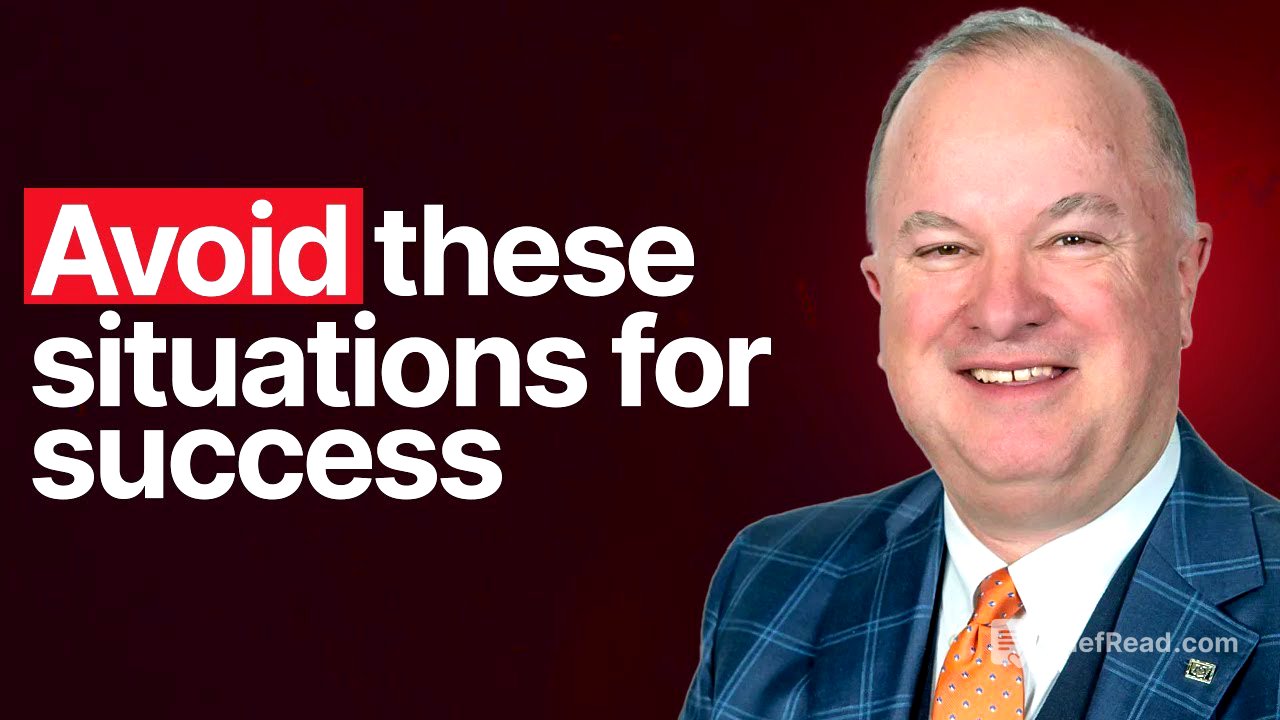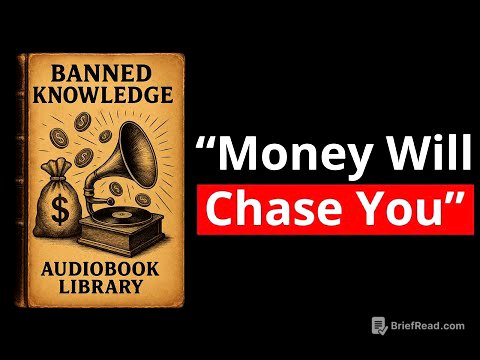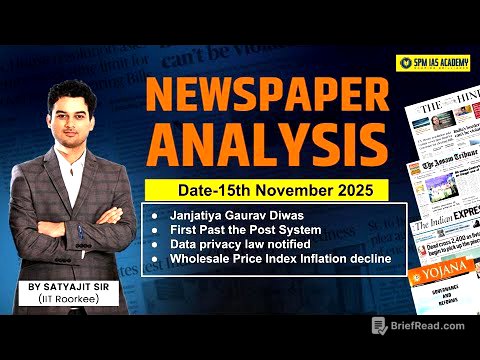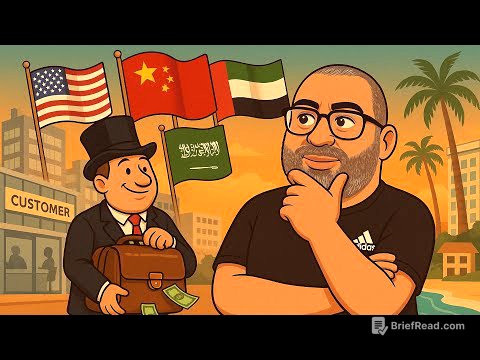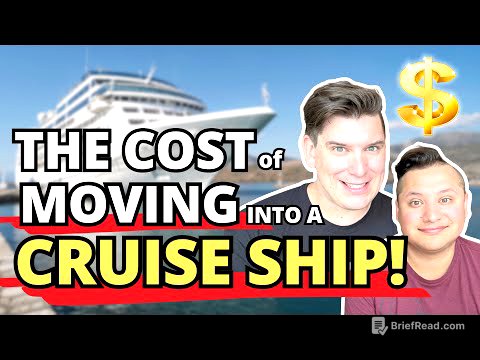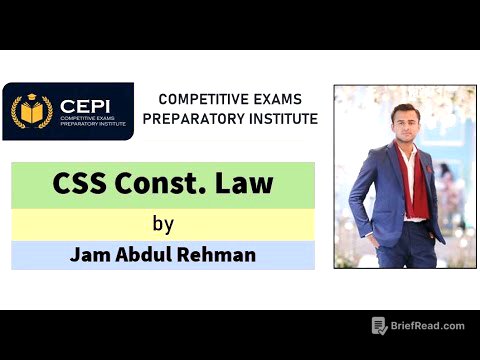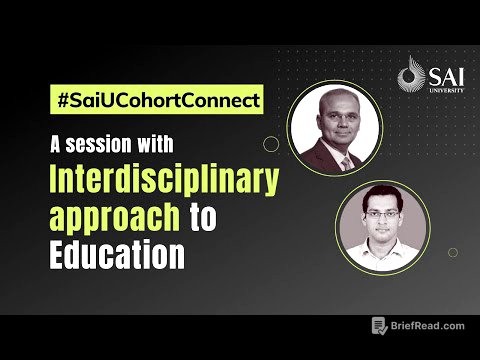TLDR;
This podcast episode features Tom Gayner, CEO of Markel, discussing a wide range of topics from lessons learned from Charlie Munger to his investment philosophy, risk management, and thoughts on success. Gayner emphasizes the importance of integrity, long-term thinking, and creating win-win situations in business and life. He also shares personal anecdotes and insights gained from his career and mentors.
- Importance of integrity and win-win situations.
- Long-term thinking and patience in investments.
- Risk management and avoiding leverage.
- The value of autonomy and decentralized decision-making.
- The significance of learning from mistakes and continuous improvement.
Intro [0:00]
The host introduces the episode and its sponsor, setting the stage for a conversation with Tom Gayner, the CEO of Markel. The episode promises insights into Gayner's investment philosophy, his thoughts on risk, and his approach to building a successful organization.
Lessons learned from Charlie Munger [3:22]
Gayner reflects on the profound influence of Charlie Munger, emphasizing his teachings on deserving what you want and working backward from desired outcomes. Munger's transition of Warren Buffett from focusing on cheap businesses to good businesses is highlighted, using the See's Candies acquisition as a prime example. Gayner also shares a personal anecdote about his father's advice to always do favors for others, illustrating the principle of adding value and fostering positive relationships.
Quaker roots [6:35]
Gayner discusses the impact of his Quaker upbringing, particularly the central tenet that all people are equal. He connects this principle to investment decisions, citing the example of CarMax's fixed-price model for used cars, which mirrors the Quaker tradition of fair and equal treatment in commerce. He references historical Quaker merchants like John Wanamaker and RH Macy, who built successful businesses by treating all customers equally.
Win-win business [9:07]
Gayner emphasizes the importance of win-win relationships with customers for long-term success in retail. He contrasts the short cycle time of a grocery store, where repeat business incentivizes fair pricing, with the longer cycle time of a car dealership, where incentives may not always align with the customer's best interest. He shares an anecdote about his kids learning about businesses that take advantage of tourists due to a lack of repeat customers.
Early career [12:55]
Gayner recounts his early career and how he came to join Markel. He describes reading an article about Warren Buffett in 1984, which inspired him. He became an analyst covering Markel, recognizing its potential to emulate Buffett's approach with Berkshire Hathaway. After building a relationship with Steve Markel, he joined the company in 1990, and shares a story about how he helped Steve with a junk bond investment, which led to him getting a job at Markel.
Opportunity cost [26:27]
Gayner discusses the importance of considering opportunity cost, which he defines as understanding what you are not doing because of what you are doing. He shares how he instilled this concept in his children by constantly asking, "If we do that, what are we not going to do?" He emphasizes that being curious about the path not taken is crucial for making informed decisions and adapting to change.
Process vs. outcome [32:37]
Gayner explores the balance between focusing on process versus outcome, referencing Annie Duke's book "Thinking in Bets." He explains that while outcomes are important, a sound process is more likely to lead to long-term success. He uses the analogy of coin flips to illustrate that consistent application of a good process will yield favorable results over time.
The dot-com tech bubble [35:12]
Gayner recounts his experience during the dot-com bubble, admitting that he struggled to understand the valuations of unprofitable internet companies. He shares a story about attending a class where a professor used the Gap as an example of a successful business with unrealistic growth assumptions. This experience solidified his conviction to stick to his value-oriented approach.
The 2008 financial crisis [41:18]
Gayner reflects on the 2008 financial crisis, recalling his decision to sell his position in Citigroup despite feeling bad about taking a loss. He emphasizes the importance of being in the insurance business rather than banking, as insurance companies are less susceptible to runs on the bank. He felt confident in the cash flows that Markel had, which allowed them to navigate through the storm.
Dealing with Emotions during high-stakes situations (selling and buying) [44:37]
Gayner discusses how to manage emotions during high-stakes situations, emphasizing the importance of methodical decision-making and avoiding rash actions. He advises taking time to think things through and slowing down the decision-making process. He stresses the value of having established processes and habits that can guide behavior in times of crisis.
Lessons from the financial crisis [46:05]
Gayner shares the key lesson he learned from the financial crisis: the importance of understanding and managing leverage. He emphasizes that while leverage can be a powerful tool, too much of it can be devastating. He advises maintaining awareness of leverage levels and ensuring they remain within manageable bounds.
Debt and low-interest rates [48:03]
Gayner discusses the impact of debt and low-interest rates, sharing a story about Disney issuing 100-year debt at a low rate. He contrasts this with the US government's decision to issue short-term debt. He also shares a story about how he wanted to buy Eskimo Pie and rename Markel to Eskimo Pie so they could issue bonds. He expresses concern about the environment of essentially 0% interest rates, which he believes has led to poor capital allocation decisions.
Thinking long-term in a short-term world [58:44]
Gayner discusses the challenges of thinking long-term in a short-term world. He emphasizes the importance of discipline, thoughtfulness, and common sense. He shares an anecdote about his daughter's work as a public defender, which highlighted the difficulties faced by those who cannot afford to think long-term.
How COVID impacted Markel [1:10:33]
Gayner reflects on how COVID-19 impacted Markel, describing the uncertainty and challenges of the early months of the pandemic. He recounts a dinner with a senior government official shortly before the shutdowns, which underscored the lack of knowledge about the virus at the time. He discusses the financial impact on Markel's insurance business, particularly event cancellation insurance.
Thoughts on Risk [1:19:06]
Gayner shares his thoughts on risk, defining it as "more things can happen than do happen." He recounts a recent incident in Florida where his rental car was hit, illustrating his approach to risk assessment and prioritizing safety over minor damages. He also discusses how Markel manages cyber risk by maintaining autonomous IT systems across its different businesses.
Compensation at Markel [1:22:20]
Gayner explains how Markel compensates its CEOs to ensure they are aligned with the company's long-term goals. He emphasizes the use of multi-year compensation structures and fostering an ownership mentality. He notes that those who are uncomfortable with this approach tend not to stay at Markel long-term.
Qualitative mistakes Gayner makes with decisions [1:24:27]
Gayner discusses the qualitative mistakes he tends to make when making decisions. He admits that he is susceptible to being fooled by people who exhibit similar traits to himself, such as frugality and modesty. He emphasizes the importance of having people around you who can identify your blind spots.
Favorite biographies [1:29:18]
Gayner shares some of his favorite biographies, including those of Ulysses S. Grant and Admiral Nimitz. He highlights Grant's focus on logistics and support, as well as his commitment to a noble cause. He also discusses Nimitz's ability to make decisions under conditions of extreme uncertainty.
Simplicity and decision-making [1:33:10]
Gayner discusses the relationship between simplicity and complexity, emphasizing the importance of returning to basic principles. He references Mark Leonard's concept of base rates and Markel's commitment to autonomy. He explains that while Markel is a large organization, most decisions are made by small groups of people with accountability to one another.
Interest rates and stock option counting [1:41:00]
Gayner describes interest rates as a "curfew," explaining how low rates can lead to poor capital allocation decisions. He shares his skepticism about stock option accounting, noting that he economically adjusts for options when evaluating companies. He also mentions that he tends to avoid companies that heavily rely on stock options.
Historical cost vs. present cost and EBITDA [1:50:25]
Gayner discusses the challenges of investing in natural resources due to the discrepancy between historical cost and present cost. He shares his preference for businesses like Disney and Guinness, where he believes the accounting is more reliable and the value proposition is more sustainable. He also shares his thoughts on EBITDA, explaining that it can be a useful metric but should be interpreted with caution.
Why don't you ever sell? [1:58:29]
Gayner explains why he rarely sells stocks, citing opportunity cost and tax efficiency. He emphasizes that the case for selling something and buying something else must be compelling, given the tax implications of realizing a gain. He also highlights the importance of "doing more of what's working," which often means holding onto successful investments for the long term.
What is success? [2:03:50]
Gayner concludes by sharing his definition of success: continuing to do what he loves, maintaining a happy marriage and family, and being part of an organization that provides sustenance and opportunity for its employees. He emphasizes the importance of serving customers and building relationships, which he finds deeply fulfilling.
